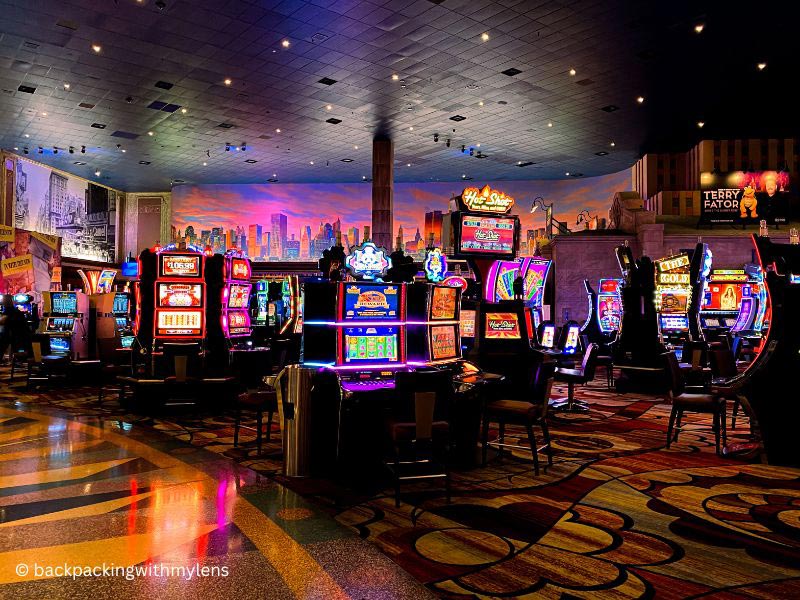
In the world of gambling, in which chance and strategy meet, a unique tapestry of beliefs manifests—one that intertwines luck, fate, and the enigmatic nature of casino games. Casinos, bustling with excitement and anticipation, are not just places for placing bets; they are also arenas in which superstitions thrive. From the novice player to the seasoned gambler, these mysterious practices often shape how individuals approach the games they play, believing that their actions can impact the outcome in ways that go beyond mere probability. shbet
When players gather around roulette wheels, blackjack tables, and slot machines, the atmosphere is thick with stories of lucky charms, rituals, and codified behavior that defy logic yet provide a sense of comfort. It could be the case that it’s wearing a specific outfit, following a particular sequence of bets, or even avoiding certain numbers, the attachment to various superstitions reflects a deep-rooted desire to control the uncontrollable. This article delves into the captivating world of casino game superstitions, exploring the beliefs that simultaneously entertain and mystify those who dare to play.
Cultural Origins of Superstitions
Gambling games have long been entwined with an variety of superstitions that trace to early civilizations. The roots of these beliefs can be linked to humanity’s innate desire to control the unpredictable outcomes associated with luck and randomness. In early civilizations, activities of uncertainty were often tied to religious practices. Players would invoke favor or seek favor from gods, believing that their actions could affect the results in their benefit. This basis laid the foundation for the multitude of superstitions that proliferated as gambling evolved over time.
During the medieval age, gambling became a common pastime across Europe, and with it, a colorful tapestry of superstitions emerged. Participants adopted different rituals and charms, believing they could influence the outcome of games. The significance of digits, in particular, emerged to show in superstitions related to card games and dice. The number 7 was often considered lucky, while different numbers carried negative connotations. These beliefs mirrored the cultural contexts of the time, adapting as they passed through generations and adapted to different gaming environments.
As casinos developed in the seventeenth century, particularly in Italy and the French nation, the atmosphere surrounding betting became saturated in mystique. The growing availability of casino activities allowed for the dissemination and variation of superstitions among players. Concepts like fortunate charms, special seating locations, and rituals gained importance, creating a special culture within gambling establishments. As these customs continued to thrive, they became integral to the identity of gambling games, illustrating how historical developments and culture shape the convictions that influence how players engage with luck.
Common Casino Myths
Superstitions surrounding casino activities are abundant and diverse, reflecting the hopes and anxieties of gamblers as they participate in random games. One of the most common views is that certain numbers bring fortune or bad luck. For example, the number 7 is often seen as a lucky number, frequently sought after by players looking for a positive outcome. Conversely, the number thirteen is routinely considered cursed, leading many gamblers to avoid it during their gaming sessions.
Another frequent superstition relates to rituals that gamblers believe can influence their chances. Whether blowing on dice before a throw, using a specific gesture to place a wager, or even putting on specific items of attire, many people feel that these rituals can sway fate in their favor. These rituals offer a feeling of control in an otherwise unpredictable environment, reinforcing the idea that luck can be manufactured through personal convictions and customs.
Finally, the ambiance and atmosphere of the gambling house itself adds to myths. Many players suggest that the presence of certain symbols, such as four-leaf clovers or lucky coins, can enhance their odds of winning. Additionally, gamblers might hold to the notion that winning streaks can be interrupted by mundane events, such as a person walking past or a spill at the gaming surface. The shared atmosphere in a gambling house can amplify these beliefs, creating a communal culture of myths that transcends individual encounters.
Impact of Superstitions on Players
Beliefs play a important role in the mindset of casino players, often influencing their behavior and decision-making. A lot of gamblers think that fortune can be manipulated through various rituals, such as wearing a lucky charm, selecting specific colors, or avoiding certain numbers. This reliance on superstitions can create a feeling of authority in an environment that is intrinsically unpredictable. Players often feel more self-assured and involved when they think that their actions could sway the outcome of a game in their favor.
The impact of these superstitions extends past individual players, affecting the general atmosphere inside the casino. For instance, a player who believes in the luck of a certain slot machine might attract a gathering, as others are intrigued by their apparent luck. This collective belief can heighten excitement and create a dynamic environment, leading to an engaging experience even for those who may not necessarily be superstitious. The buzz around specific games can lead to increased participation and extended playing sessions, supporting the casino’s vibrant social scene.
In some cases, superstitions can lead to negative effects for players. Depending too much on rituals can result in bad gambling decisions, as some may overlook basic strategies in favor of baseless beliefs. Additionally, the stress to perform rituals may heighten anxiety and stress levels, detracting from the enjoyment of the experience. Ultimately, while superstitions can enhance the excitement of playing casino games, they can also lead to poor choices that overshadow the fun and entertainment intended in the casino experience.